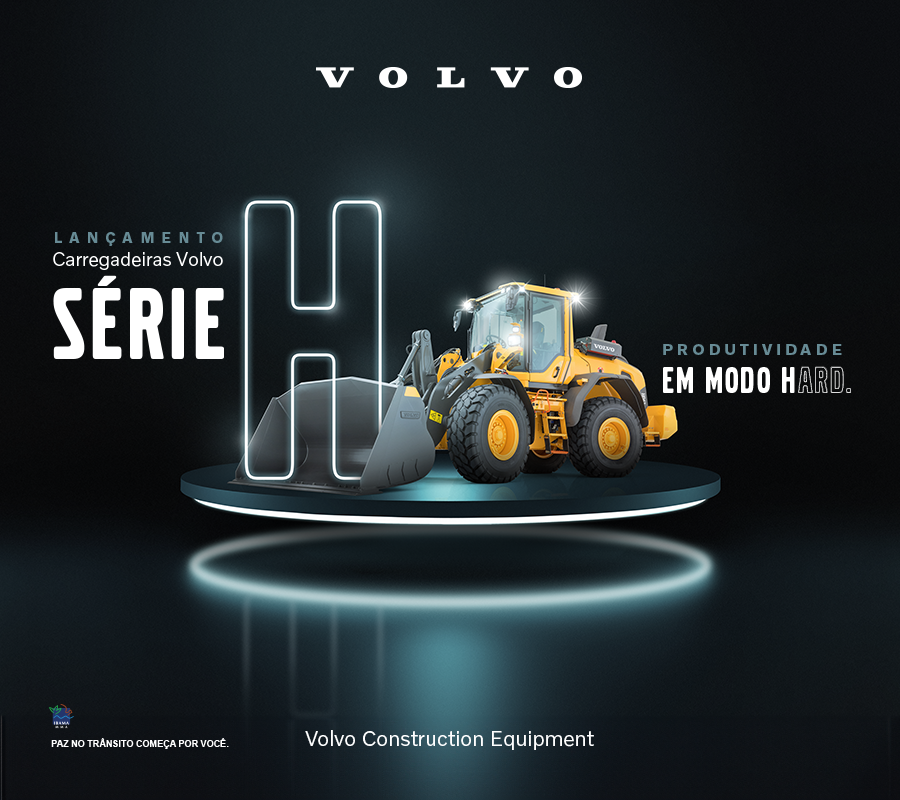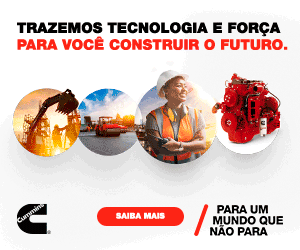In the opposite direction of the crisis
In addition to a rare commercial stability in 2015, the railway industry attracts multi-national manufacturers to the country, such as the South-Korean giant Hyundai Rotem
In spite of the economic crisis that is devastating the country, the situation seems stable (and might say even auspicious) in the Brazilian railway industry. Starting the production of its first Brazilian plant, Hyundai Rotem—branch of the huge South Korean conglomerate that manufactures wagons, locomotives and railway components—for example, comes full of plans into the country.
Installed in an area of 150,000 sq.mt. at the industrial district of Araraquara (SP), near SP-255 road and a new railway contour that will be concluded this year, the new plant of Hyundai is the result of an initial investment of US$ 40 million. If the installation deadline of the unit is fulfilled, the work will be an engineering prodigy: from the installation of the foundation stone (occurred in April 2nd, 2015) to the programmed date of inauguration (next March 18), construction will be carried out in just 351 days, a real record.
The place was selected due to its geographic position, surrounded by important road junctions that connect the State to all corners of the country, mainly to Center-western and Southern regions. This factor also contributed for the installation of many other companies in the region, such as the giant Randon. The most important point is the fact that this city is also a railway crossing of the main types of rails and gauges used in Brazil. This simplifies logistics and, on the other hand, is a tremendous obstacle to make feasible the railway mode in other regions.
ESSENTIALLY BRAZILIAN
The plans for the plant are ambitious. After all, this is the second largest production unit of the company in the world. According to André Han, commercial director of Hyundai Rotem Brasil, it will also be responsible by attending the demand of other Latin American countries. “We consider that Brazil is an extremely promising and economically strong country”, points him. “In spite of the current crisis, there is a high necessity of projects and investments in urban mobility. Therefore we see excellent business opportunities in the country.”
Obviously, the turbulent period that the country is going through does not affect Hyundai. This becomes evident in the words of its commercial director. “We are studying Brazil during many years to understand better its economic cycles. This phase was already foreseen and our investments were established for a long-term scenario”, comments him. “We are sure that a new cycle of heating will come in the next years depending on the politic and economic reorganization to encourage this retaken.”
Han is referring to a period of more than a decade which starts from the first contract signed in 2003 with the State Government of Bahia to supply six trains, in a total of 24 TUEs (Electric Unit Train) that would be used in the metropolitan transport system of its capital, Salvador. The project worked so well that the municipality came again in 2013 to buy trains from the company to complete the same Line 1 of its subway and to be used in its Line 2, but now in higher quantity: 34 trains with 136 cars.
In addition, contracts with other government institutions—such as those closed with the Secretary of Transports of Rio de Janeiro in 2004 to supply 20 trains with 80 cars and with the Concessionaire of Line 4 of São Paulo Subway in 2007 to supply 29 trains with 174 TUEs—also encouraged the project of a plant in Brazil. Till that time, the compositions were imported from South Korean company headquarters, in a complex operation of transport. Aside this complex logistic, new projects of high income and the more and more high demand for national content transformed the Brazilian plant in an urgent necessity for the company.
Then—after a lot of conversation— occurred the idea of a joint venture with Iesa Projetos, Equipamentos e Montagens, a manufacturer of subway and railway products located in Araraquara whose experience of more than three decades was considered ideal to attend the needs of Hyundai. “The start of operations in the area provided by Iesa was due to the commitments with too challenging deadlines we had to comply. This would not allow us to wait for the conclusion of our own plant”, tells Han. “And attending the client is our priority.”
The installation of the temporary line demanded refurbishing and modernization of its plant area, in the same frenetic pace of the works in the new plant. Starting in March, 2015, the production was already at full speed in August. Using financing of Finame, the first set of cars that left Hyundai’s line in the rented plant included 30 trains, each one composed by eight cars (a total of 240 cars) in a contract signed with CPTM (Companhia Paulista de Trens Metropolitanos) in August, 2013. In December of the same year, CCR Metrô Bahia, from Salvador also bought 34 trains composed by 136 TUEs. All trains were bought through Finame, since the wagons—excluding components such as gearbox and truck, which are not still being produced here—comply with all requirements to be considered national products.
Brazil and Latin America are in so high concept in the perspectives of Hyundai that even after starting the operation in the new plant, the rented area will be used for eventual peaks of production and enlargement of the portfolio—quite diversified in other markets but that currently will be composed by only two models, those of higher demand in Brazil and in the region—or even to deal with the specific features of each contract, such as those of the trains of Salvador, with four-car compositions (all powered) and of CPTM project, composed by eight-car TUEs ( four powered).
And the good phase will not stop there. According to the executive, other potential “opportunities” are being studied, such as the case of Line 13 – Jade, a subway and railway line that will connect the capital to Guarulhos International Airport, a project defined many time ago by the state government that now eventually is becoming real, with its auction expected for some moment of 2016.

Av. Francisco Matarazzo, 404 Cj. 701/703 Água Branca - CEP 05001-000 São Paulo/SP
Telefone (11) 3662-4159
© Sobratema. A reprodução do conteúdo total ou parcial é autorizada, desde que citada a fonte. Política de privacidade














